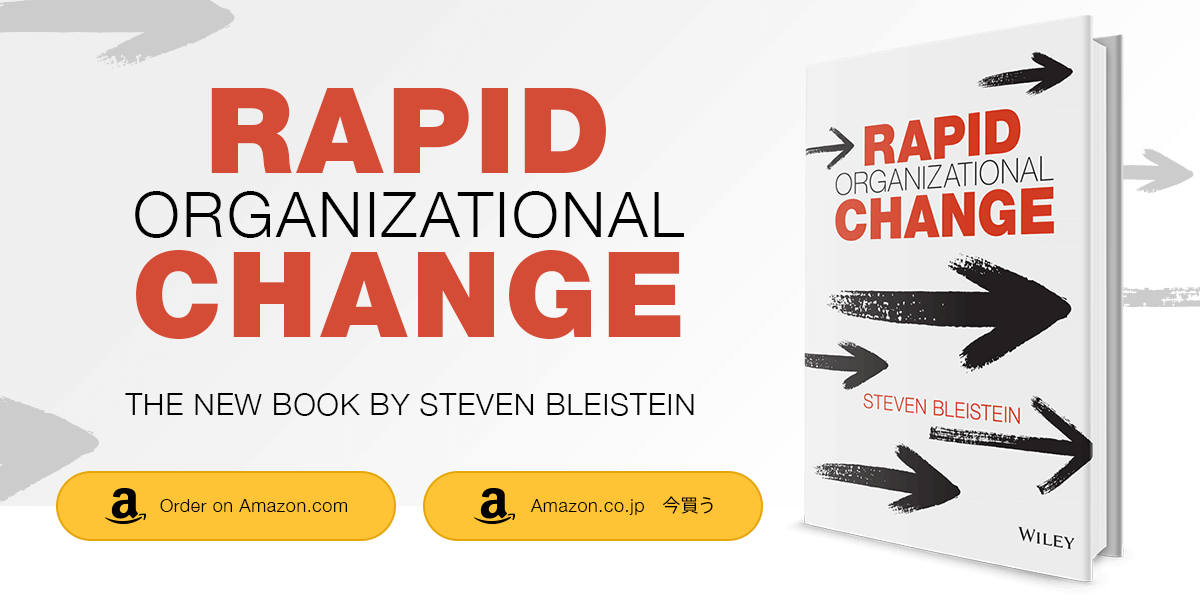[:en]
Most leaders view monetary incentives as the most important driver of performance, whereas most employees view it as the least important. Monetary incentives reduce performance to an economic transaction—an offer for a price—which he or she may accept or walk away from.
Your best employees perform well because good performance is part of who they are and what they do, regardless of the incentives on offer. I have never seen a top employee deliberately reduce performance simply because a bonus is not on offer. I have also never seen a mediocre employee improve performance simply because more money was at stake. Some non-performers have even told me candidly that they have enough money, and the extra effort isn’t worth the bother. For example, a senior manager who despises learning English once told me as much despite facing a significant salary cut if his TOEIC scores did not improve.
Growth-oriented people are driven by challenge more than by money. They seek out difficult assignments that will force them to learn and grow. They do not fear failure, but rather view failure as part of learning. People who have such mindsets are consistently top performers.
People who have these mindsets are consistently top performers. Share on XIf you want to motivate the people you lead, mete out challenging assignment beyond the current capability of each member. Force them grow. Allow them to fail, but insist they learn from failure, and not make the same mistake twice. This is what will motivate the best performance in your best employees.
However, not everyone is growth oriented. Some will walk away from challenges because personal growth is simply not of interest to them. This is a matter of their own personal values, and you are not going to fundamentally change an employee’s values, or anyone’s for that matter, simply by offering money.
 [:ja]多くのリーダーは、金銭的報酬があれば、社員の頑張ろうという気持ちが最も高まると考えていますが、実際、殆どの社員は、金銭は全然モチベーションの源とはならないと感じています。金銭によるインセンティブは、業績イコール取引、つまりどれだけ業績が上がれば幾らもらえる、という考え方を植えつけてしまいます。そしてそういった取引を受け入れるか、或いは拒否するかは、社員次第なのです。
[:ja]多くのリーダーは、金銭的報酬があれば、社員の頑張ろうという気持ちが最も高まると考えていますが、実際、殆どの社員は、金銭は全然モチベーションの源とはならないと感じています。金銭によるインセンティブは、業績イコール取引、つまりどれだけ業績が上がれば幾らもらえる、という考え方を植えつけてしまいます。そしてそういった取引を受け入れるか、或いは拒否するかは、社員次第なのです。
よくできる社員というのは、提示された報酬などに関係なく、もともとの性格や能力のおかげで優秀なのです。私もこれまでに、ボーナスをもらえないから、などという理由で、優秀な社員がわざと仕事の手を抜いている姿など、見たことがありません。同様に、平凡な社員が、報酬を提示されたからといって、業績を上げたなどという話も聞いたことがありません。業績のぱっとしない社員が、「自分にはお金は十分あるし、正直、そんなに頑張る必要もないと思う。」などと言っているのを、聞いたことさえあります。ある経営幹部は、TOEICの点数が伸びなければかなり給料が減らされる、などということになるのは嫌だが、自分はそれと同じくらい英語が嫌いだ、と言っていました。
成長志向の高い人というのは、金銭より、挑戦によって突き動かされるものです。彼らは難しい課題にわざわざ取り組み、それによって学び、成長することを求めています。失敗をおそれず、また失敗は学びの一部と考えています。そういった見方をできる人たちは、常に業績も高いものです。
もし部下にモチベーションを与えたいのであれば、ひとりひとりに、現在の能力以上のものが求められるような、困難な課題を与えてあげましょう。余儀なく成長できるようにしてあげるのです。失敗は大目に見、同時にその同じ失敗を二度と起こさないように要求しましょう。こうすれば、できる社員により頑張ろうと感じさせることができます。
しかしながら、人によっては成長志向がないこともある、ということも覚えておいてください。人間的成長に興味のない社員は、困難な課題に背を向けてしまうかもしれません。これは個人個人の価値観によるもので、単に報酬をちらつかせたからといって変えられるようなものではありません。[:]

